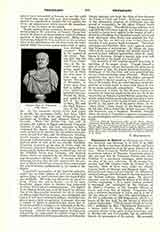

Vespasiano da Bisticci (or FIORENTINO), Florentine humanist and librarian, b. in 1421; d. in 1498. He was chiefly a merchant of choice books, and had a share in the formation of all the great libraries of the time. When Cosimo de’ Medici wished to create the Laurentian Library of Florence, Vespasiano advised him and sent him by Tommaso Parentucelli (later Nicholas V) a systematic catalogue, which became the plan of the new collection. In 22 months Vespasiano had 200 volumes made for Cosimo by 25 copyists. Most of them were, under the circumstances, books of theology and liturgical chant. He had performed important services for the diffusion of classical authors when Nicholas V, the true founder of the Vatican Library, became pope. He devoted fourteen years to collecting the library of the Duke of Urbino, organizing it in a quite modern manner; it contained the catalogues of the Vatican, of St. Mark’s, Florence, of the Visconti Library at Pavia, and even that of Oxford. Vespasiano had only a mediocre knowledge of Latin, and he is one of the few writers of the time who acknowledged it. He left a collection of 300 biographies, which is a source of the first rank for the history of fifteenth-century humanism: “Vite di uomini illustri del secolo XV”, published by Mai, “Spicilegium Romanum”, I, Rome, 1819; by Frati, Bologna, 1892. He is certainly inferior to the great Italian historians, such as Machiavelli and Guicciardini, but he admirably depicts the atmosphere of the period. His accounts plunge the reader into the very atmosphere of Florence; they contain delicate pictures of manners, charming portraits, noble female figures, of which last point it is possible to judge by reading the biography of Alessandro Bardi (ed. Mai, 593). The general tone is that of a grave moralist, who shows the dangers of the Renaissance, especially for women, warns against the reading of the novelists, and reproaches the Florentines with usury and illicit gains. Vespasiano is a panegyrist of Nicholas V, the great book-lover; he is severe to the point of injustice against Callistus III, the indifferent lender of books, which, however, he did not give over to pillage, as Vespasiano accuses him of doing.
PAUL LEJAY

